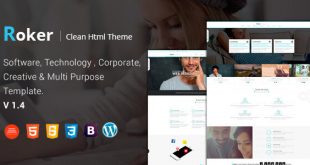Maintaining code quality is crucial in software development. Testing the code is a shared job between a developer and a tester. However, unit testing is the developer’s responsibility to confirm that the code they are writing works flawlessly at the component level. In 2024, automation testing has become the norm in the software industry, and choosing the suited unit testing frameworks has become a vital decision for developers. It allows for faster and more reliable testing processes.
To automate unit testing, developers require reliable and secure frameworks that efficiently test all web application components. Unit testing frameworks are in high demand in the IT industry. A framework refers to the library or software tool that delivers a structured environment for writing, managing, and executing unit tests in software development. Different unit testing frameworks allow developers to write test scripts in their preferred language.
This article will discuss a few unit testing frameworks in 2024 based on their features, functionality, and popularity.
Best Unit Testing Frameworks:
TestNG
TestNG encompasses various testing categories, such as functional, unit, end-to-end, and integration testing. Its design aims to address the limitations found in JUnit.
The tool boasts enhanced robustness and reliability compared to JUnit. It equips developers with various functionalities, including grouping, sequencing, and parameterizing, thereby enabling the creation of highly flexible test cases. This tool enhances efficiency and effectiveness in testing procedures by addressing JUnit’s limitations and streamlining the process of automating unit tests. Its diverse feature set and capabilities have made it a favored option for test automation and management within the development community.
A few pivotal features of TestNG are:
- Allows developers to execute parallel tests across different code snippets
- Set priorities for the unit testing by parameterizing the data or utilizing annotations
- Generating HTML reports while running test cases
- Grouping test cases as per the requirements
- Data-driven testing is supported by using the data providers
JUnit
JUnit is a widely utilized open-source testing framework designed for Java programming. Its primary purpose is to facilitate the creation and execution of unit tests to ensure the precision and reliability of web applications.
While JUnit 4 has been a popular version for an extended period, the introduction of JUnit 5 brought about substantial enhancements and modifications. These include a more adaptable architecture, augmented support for parameterized tests, and increased extensibility.
JUnit 5 provides numerous advantages, including a modular and extensible architecture, enhanced test nesting, parameterized tests, and improved assertions. Developers should allocate time towards familiarizing themselves with the new functionalities and to assess compatibility with current projects and tools before transitioning from JUnit 4.
A few pivotal features of JUnit are:
- Read and organize tests better with nested test classes and practices.
- JUnit 5’s modular structure allows you to use what is needed, keeping the tests efficient.
- Improved assertion library for more readable tests.
- Run large test suites competently on multi-core systems.
- Write concise, definitive test code with Java 8’s lambdas.
- Add extra features such as hooks, reporting, and dependency injection by a flexible extension model.
- Test with various inputs utilizing parameterized tests, diminishing code duplication.
Selenide
Selenide is a popular Java testing framework commonly utilized in conjunction with Selenium WebDriver to enhance the functionalities of WebDriver and JUnit. It is an effective tool for developing accurate, comprehensible, and reliable test cases for Java applications’ user interfaces.
WebDriver is widely recognized for its effectiveness in UI testing. However, it has no native capability to handle timeouts efficiently, particularly when testing dynamic web technologies such as Ajax. The Selenide framework effectively addresses these challenges, providing a seamless solution. Its installation is straightforward, and the learning curve is minimal. By leveraging Selenide, testers can focus on refining the logic of their tests while the framework manages the underlying complexities.
A few advantages of Selenide are:
- Effectively solves most Ajax/timing issues, ensuring accurate and reliable tests.
- Eliminates the need for numerous intricate commands in traditional Selenium tools, making the automation testing workflow more efficient.
- Supports testing applications developed utilizing AngularJS.
- Simplifies the process of writing test cases, facilitating timeout issues.
Serenity
Serenity is a testing framework developed as an open-source solution designed to integrate with well-known Java testing frameworks such as JUnit and TestNG. It offers advanced capabilities that aid in developing robust and articulate automated tests, promoting maintainability and reliability.
This framework allows users to generate comprehensive testing reports, including descriptive elements. Furthermore, it provides the capability to align automated testing with specific requirements.
A few pivotal features of Serenity are:
- The active community furnishes support, documentation, and tutorials.
- Encourages BDD for natural language-style tests.
- Supports testing with multiple datasets
- Offers flexibility through extensions, configuration, and plugins.
- Enhances efficiency and provides parallel test execution support.
- Seamlessly integrates with Cucumber and Selenium WebDriver.
- Excels in web application testing, supporting the POM pattern.
- Easy-to-understand test reports for adequate communication.
Jest
Jest is an open-source JavaScript testing framework maintained by Facebook, which is widely preferred by developers for conducting JavaScript unit testing. Although Jest can handle various types of testing, such as unit, functional, end-to-end, and integration testing, it is commonly utilized for automating unit tests. Notably, Jest stands out for its user-friendly testing environment, eliminating the need for intricate configurations.
Jest is commonly utilized across various applications, with a notable presence in React and ReactJS-based platforms. Its intuitive and simple interface enhances its appeal, enabling developers to execute unit testing procedures efficiently.
A few pivotal features of Jest are:
- Furnish standard syntax with documentation support.
- With zero configuration, it works out of the box on every JavaScript project.
- Ideal for ReactJS, React, VueJS, NodeJS, and Babel-based projects.
- The Snapshot feature permits you to keep track of extensive objects with ease.
Mocha
Mocha stands out as a widely favored JavaScript testing framework known for its flexibility and compatibility with various libraries. It is a preferred choice among developers due to its versatility and seamless integration with complementary tools such as Chai for assertions and Sinon for mocking and stubbing functions.
The framework is recognized for its advanced asynchronous test execution capabilities, which enable it to effectively manage concurrent tasks. It utilizes the Chrome V8 engine or other compatible web browsers to achieve this functionality, positioning it as a robust and premier unit testing framework. Its adeptness in supporting asynchronous testing scenarios has garnered high esteem among JavaScript developers for diverse testing needs.
A few prominent features of Mocha re:
- Can test the application’s front-end and back-end components.
- Supports testing in any browser, like the headless Chrome library, guaranteeing compatibility across different environments.
- Provides a clean foundation that permits developers to write tests according to their convenience and preferences.
- Includes built-in support for the NodeJS debugger, making debugging tests and identifying issues effortless.
Jasmine
Jasmine is a highly regarded open-source JavaScript testing framework that provides comprehensive support for BDD, a methodology emphasizing thorough unit testing of all code components. This practice enables developers to produce meticulously tested and well-documented code.
This framework is utilized for front-end testing, encompassing activities such as assessing the responsiveness and visual presentation of a web application’s user interface across different devices and screen sizes. Additionally, it serves as a proficient Selenium JavaScript framework for streamlining unit testing automation processes.
A few vital features of Jasmine are:
- Available with significant documentation and community support.
- Offers a straightforward, small, and clean syntax for easy web app testing.
- Does not require any document object model.
- Provides comprehensive support for testing front-end and back-end components.
Puppeteer
Puppeteer, a framework developed by a team at Google, is a highly effective tool for conducting tests. It provides a specialized Chrome API that seamlessly integrates with NodeJS applications. Primarily utilized for web browser-related functions, Puppeteer excels in tasks such as evaluating web page structures, generating screenshots, and capturing pre-rendered content in single-page applications.
A few vital features of Puppeteer are:
- Supports ES6 functionalities like await and async.
- Can set browser resolutions and sizes.
- Supports automation for tasks, such as testing the user interface, submitting forms, and simulating keyboard inputs.
- Permits to test Chrome extensions.
ChaiJS
The ChaiJS framework is specifically engineered for behavior-driven testing in JavaScript. Its notable strength lies in its adaptability, which allows for seamless integration with a wide range of other testing frameworks. With a well-established presence in the JavaScript ecosystem, ChaiJS has consistently evolved to align with the changing standards in JavaScript development.
The framework demonstrates compatibility across multiple environments, including Node.js, web browsers, and Rails, rendering it versatile for various projects. It is supported by an engaged and supportive developer community, offering extensive documentation to aid users in efficiently integrating and utilizing the framework for their testing requirements.
A few vital features of ChaiJS are:
- Follows the BDD approach, authorizing developers to write tests in a human-readable format.
- Used for both server-side and browser-based testing.
- Provides a rich set of assertion styles and plugins, permitting developers to extend its functionality according to their specific testing needs.
Pytest
Pytest is a versatile automation testing framework suitable for various software testing scenarios. In addition to its status as an open-source unit test framework, Pytest offers a user-friendly interface that facilitates its adoption and integration into various testing projects.
A few vital features of Pytest are:
- Permits developers to write test cases compactly.
- Execute parallel testing efficiently with the pytest-xdist.
- With its multiple fixtures, developers can cover all the parameter combinations without rewriting the test cases.
- Store all the values inside the test cases while informing developers about the failed and asserted value.
MSTest
MSTest is equipped with a built-in testing framework, called Visual Studio, developed by Microsoft. Thus, there is no need for additional downloads or installations on your system, as it is readily available within your integrated development environment. This framework is commonly utilized for conducting tests on .NET applications. Furthermore, if TestComplete is being utilized, integration of MSTest tests into test scripts can be seamlessly achieved, allowing for their execution as part of the overall testing procedure.
A few vital features of MSTest are:
- Directly executes test cases with a simple process.
- Executes data-driven tests from a DB source.
- Flexible integration with team strategies that report LOADS of statistics.
- Quick setup and teardown while developing an efficient database.
- Determine the order of tests.
The actual capabilities of the unit testing frameworks discussed above can be leveraged when used with cloud testing platforms like LambdaTest.
LambdaTest is a comprehensive test orchestration and execution platform that leverages artificial intelligence to facilitate the seamless and efficient running of manual and automated tests on a large scale. Focusing on providing a versatile testing environment, LambdaTest empowers users to conduct both real-time and automated testing across an extensive array of environments, encompassing over 3000 configurations, including browsers and real mobile devices.
Conclusion
Unit testing frameworks are crucial for developers to ensure the reliability and quality of the software. Whether you are working with a particular programming language or targeting a specific platform, there are unit testing frameworks that cater to your requirements. These frameworks deliver functionalities such as test automation, mocking, assertion libraries, code coverage analysis, and the empowerment of developers to write comprehensive unit tests.
 free html design Free html design templates
free html design Free html design templates






